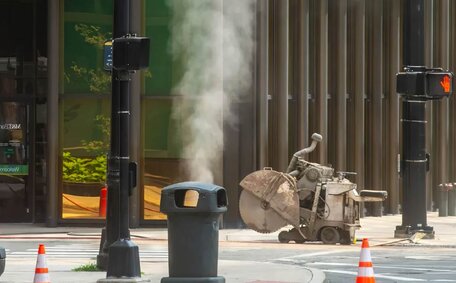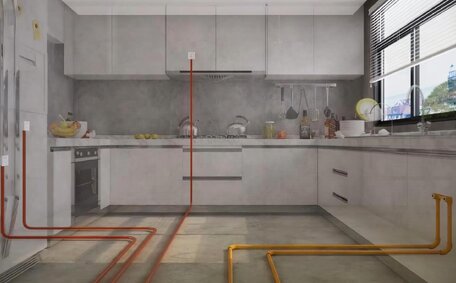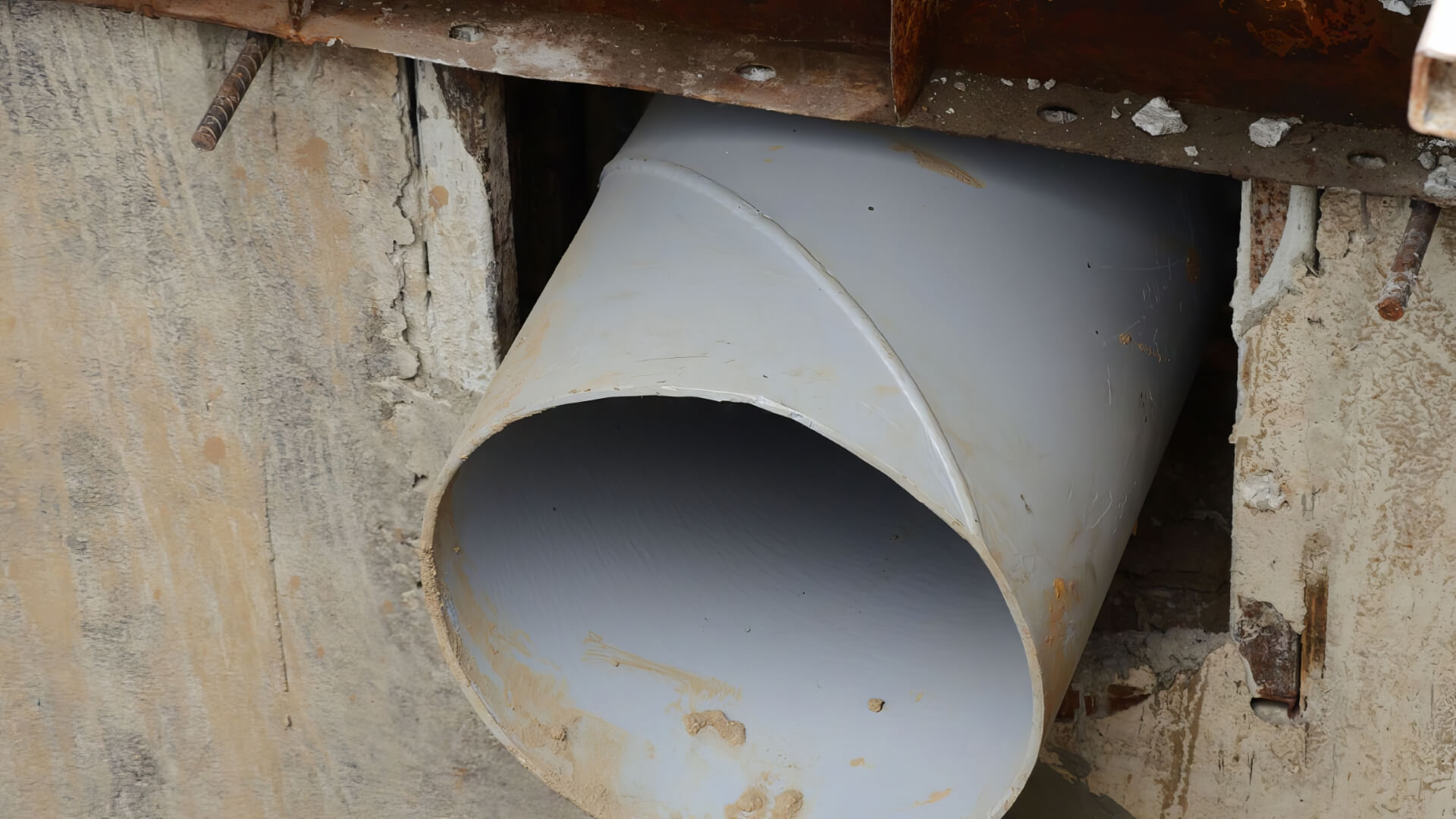Introduction to Items That Should Not Go Down Drains
Being mindful of what goes down our drains is vital for maintaining the integrity of your plumbing system. Common substances such as fats, oils, grease, and coffee grounds can lead to pipe clogs, infrastructure damage, and environmental pollution if they end up in our drains.
Instead of flushing, food scraps, chemicals, and plastics should always be disposed of properly. We’ll explore exactly why later on.
Knowing what to avoid putting down the drain helps protect our homes, public health, and the environment. Small lifestyle changes can have a significant impact. This article provides proper disposal methods for common household items and alternatives to ensure smooth drain function.
Why It’s Important to Properly Dispose of These Items
It’s critical to dispose of waste in appropriate receptacles to prevent clogged drains and plumbing damage. Compounds such as fats, oils, and grease, along with hair and food scraps, can congeal within pipes. Cooking greases are one of the most common culprits, accounting for nearly 75% of all sewer blockages when improperly washed down drains.
As solids accumulate, they restrict water flow, potentially causing backups and flooding when they go down your drains. Partial blockages also reduce water supply, while greases coat pipe walls and attract further buildup. Ultimately, even your household drains can require expensive rodding, repairs, or full replacement if not properly maintained.
Improper disposal and the items we should avoid putting down the drain goes beyond damaging plumbing systems; it threatens our wastewater and, subsequently, our waterways. Wastewater containing refuse, chemicals, and hazardous fluids can present multiple issues in septic and sewer systems because treatment plants may lack the capacity to effectively filter out these contaminants. Sewage then flows into rivers, lakes, and oceans, degrading habitats and harming marine life.
Proper disposal keeps infrastructure running efficiently and prevents contamination. Alternative options like composting food waste or recycling packaging divert materials from the waste stream entirely. Understanding what to put down into our waste system is important, as local facilities can handle many common household chemicals and hazardous liquids safely.
With some simple changes, we ensure items that are safe put down your drains are the only things being disposed of, safeguarding our homes, communities, and environment. Collective small efforts from each of us, such as being cautious about not flushing the wrong items, protect our shared water systems.
Food Items Like Coffee Grounds and Egg Shells
Many common food items like coffee grounds, eggshells, and other kitchen scraps can severely damage your sink and plumbing if flushed. Coffee grounds contain oils that coat pipes, attracting further gunk and eventual blockages. Meanwhile, rigid eggshells do not break down, accumulating to restrict water flow.
Over time, eggshells can abrade and even cut through pipe materials. A mere 1% blockage in a pipe’s diameter by solids can lead to a substantial 12% reduction in water flow. So as more shells, grounds, and debris build up, capacity dwindles.
Instead of flushing, collect food scraps in countertop bins for the compost bin or green waste. Many councils provide compost collection services, ensuring organic waste and compostable materials are disposed of in an environmentally friendly manner. Backed up drains from improper disposal can cost thousands to repair.
Coffee grounds retain heat, potentially damaging pipes if flushed in large volumes. Oils turn rancid, producing foul odors, while grounds themselves bind around other solids. Root intrusion into these cracks can cause extensive, costly damage.
By using designated bins for eggshells, coffee grounds, and compostable waste, you help protect infrastructure, prevent pollution, and enrich soil.
Oils, Grease, and Other Fats
Oils, fats, and grease may seem harmless, but once poured down the drain, they harden and cause severe plumbing issues. As these materials move through sewer pipes, they tend to adhere to surfaces, gradually narrowing the flow path. Fats also turn rancid, producing foul odours that linger in the water down your drains.
In fact, cooking greases account for a striking 75% of all residential drain clogs. As little as a few tablespoons going down your drain can block entire systems. Expensive remedies such as rodding or drain replacement often result from this neglect.
Instead of putting cooking byproducts directly down the drain, collect them in containers for proper disposal. Allow cooking oil to fully cool and solidify at room temperature before you dispose them in general rubbish bins. Wiping pans and then disposing them in solid waste containers prevents excess oil residue from being flushed down into waterways through treatment plants not equipped to filter them.
Likewise, Consider what happens after use; cooking oils should be kept in sealed containers, never introduced into your septic sewer system via the kitchen drain. Check council guidelines for proper recycling facilities that convert waste like vegetable oils and motor oil into biofuel, animal feedstock, soaps, and other products. Instead of flushing them down, properly throw them out to stop oils and grease from infiltrating vulnerable infrastructure.
Paper Products Like Paper Towels
Paper products like paper towels, tissues, and Wet wipes may seem harmless to flush, but can become severe plumbing issues due to their lack of ability to dissolve easily. When wet, these items do not break down and accumulate, leading to a blocked drain and will inevitably make their way down your drain. Instead, they form clumped masses where things should never gather and restrict flow inside drain pipes.
Bundled paper towel sheets and tissues can get stuck on joints or cracks over time, trapping solids and oils and creating larger clogs. Repairing completely blocked drains often requires manual rodding or even full drain replacement, costing thousands of dollars.
Even if labelled 'flushable’, products such as wet wipes often contain synthetic fibres that do not decompose and should not be flushed. These items can end up accumulating inside your sewer systems, where they can cause blockages, wrapping around pumps and treatment equipment. Cities worldwide have launched campaigns against flushing wipes after treatment plant repairs costing millions.
To avoid damage and can cause clogs, it is crucial to get rid of paper products using proper disposal methods regardless of what their labels claim. Sanitary products such as towels, wipes, tissues, and cotton buds should always go into household rubbish bins. Speak with your local council about proper recycling options as well.
Proper disposal of paper products prevents costly infrastructure repairs.
Hazardous Materials Such as Paints and Chemicals
Hazardous materials like paint down the drain, chemicals, pesticides, herbicides, and automotive fluids can severely damage plumbing and pollute waterways if washed down drains. These substances contain toxic compounds that treatment plants cannot filter out, allowing contamination of rivers, lakes, and oceans.
Leftover paint, particularly latex-based, must enter proper disposal streams, as it contains pollutants that harm ecosystems. Many regions prohibit liquid disposal given the extreme environmental risks involved. Always check local hazardous waste guidelines for proper disposal methods.
Oil-based paints and stains with petroleum distillates can clog drains and threaten infrastructure. They can damage pipe materials and release toxins into soil and groundwater. Likewise, chemicals and automotive fluids contain substances that can put our plumbing and ecosystems at risk, requiring special handling.
Contact your local waste management authority to locate approved facilities that can safely dispose of hazardous liquids. Most councils provide drop-off days or permanent depots for hazardous materials, reducing the risk of them being poured down drains. Failing to properly handle toxic substances leads to lasting environmental damage and risks hefty fines. Always keep these especially damaging materials completely out of drains and sewers.
Proper Disposal Methods for These Items
When disposing of items like cat litter that can harm drains or waterways, adhere to local guidelines. Hazardous materials require designated facilities – contact your council. Leftover paints should seal then enter household hazardous waste streams.
Put food scraps in green bins for council composting programs. Coffee grounds, eggshells and other organics enrich soil rather than pipes. Oils and fats should fully cool before sealing in containers and placing in your household waste.
You should never put down your toilet paper products like tissues or wipes. Compostable paper towels go in organics bins, otherwise reuse then recycle via household streams. Keeping paper dry prevents waterway risks.
Adhering to policies helps protect infrastructure and the environment. Local drop-off days, depots or collectors handle tricky waste correctly. Everyone taking responsibility for your own waste disposal habits accumulates a shared benefit for the community.
Preventing Drain Clogs and Damage
There are several simple yet effective things you can do to help prevent clogs and damage to your drains:
Use Drain Strainers
Install strainers in your shower and your sink to catch food scraps, hair, and other debris before they reach your disposal units. Regularly empty strainers into your garbage to keep sinks clear and eliminate all your kitchen waste correctly, never pouring bleach down to prevent clog issues.
Dispose of Fats and Oils Properly
Let fats, oils, and grease cool and solidify before disposal to avoid damaging kitchen plumbing. Never pour hot water down your kitchen sink to ensure the integrity of your plumbing systems.
Avoid Harsh Chemicals
Examine labels on strong cleaners to mitigate the risk of corrosion. Consider green alternatives like baking soda and vinegar for gentle drain maintenance.
Use a Garbage Disposal Cautiously
Use cool water when operating your disposal unit and avoid disposing of pasta, which can swell and cause blockages.
Take Care with Paper Products
Avoid flushing paper towels and similar products down the toilet, regardless of labels suggesting they are flushable. Place in trash bins instead to avoid drainage issues.
Understanding what enters your sinks and plumbing network is essential to prevent blockages, damage, and contamination in the future. Promote household practices that preserve your plumbing infrastructure.
When to Call a Professional Plumber
Calling a professional plumber is advised when you have a severe clog or drainage issue that persists despite attempts at DIY solutions. Signs it’s time to pick up the phone include:
- Water backing up or overflowing from drains or toilets
- Gurgling sounds from pipes accompanied by foul odours
- Leaking pipes or water spots on walls/ceilings
- Complete lack of water flow despite taps being on
Our skilled plumbers have access to industrial-grade equipment to tackle even severe blockages. We provide comprehensive drain inspections to determine and address the underlying causes of persistent problems.
We provide regular maintenance checks for long-term prevention to ensure clear drains and smooth pipe flow.
Learn more about how to prevent plumbing issues with a free phone consultation by calling Rouse Hill Plumbing on 1300 349 338 or emailing jobs@rousehillplumbingservices.com.au to discuss solutions tailored for your home.






